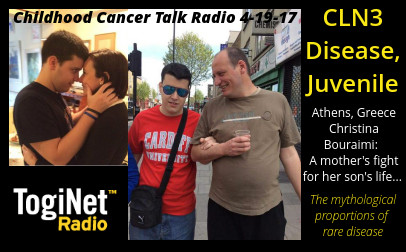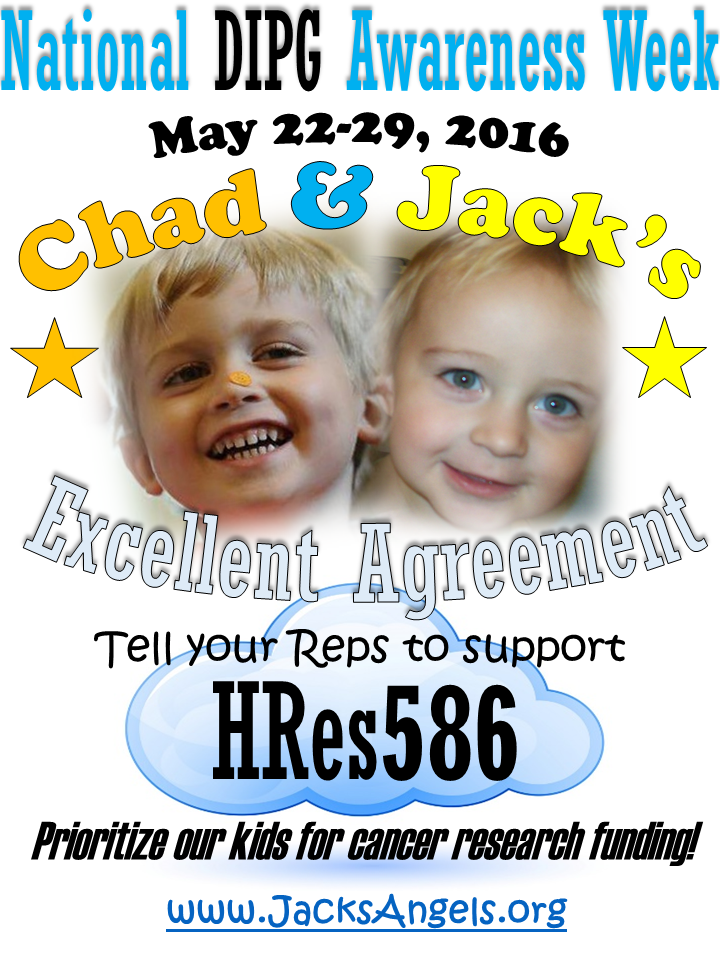
Christina Bouraimi (mother) and Nick Maroulis (nurse) join us on CCTalkRadio from Athens, Greece to tell the story of a brave young man Theodore who lives day by day with progressed symptoms of Batten Disease, CLN3. There are 10 identified types of Batten Disease, which is itself one of approximately 50 diseases called lysosomal storage disorders (LSD), meaning that genetic mutations disrupt the cells ability to dispose of wastes. With Batten disease, cells are thrown out of balance with the build-up of proteins and lipids (fats). Because of these damaged cells, patients with Batten disease suffer progressive neurological impairment, which includes seizures, visual impairment/blindness, personality and behavior changes, dementia, loss of motor skills and the ability to walk, talk and communicate. The arc of Batten disease can vary tremendously for each person due to widely varying genetic mutations; until more progress is made in research and treatments, Batten invariably results in an early death.
Christina describes the fairy-tale like joy of life prior to Batten, and the nightmare that ensued as her youngest of two boys went through the journey of diagnosis with Batten Juvenile CLN3 at the age of 6, which was unknown in Greece at the time in 2002. They received diagnostic news from U. Rochester in the United States, from Finland, and Germany to fully understand the scope of the illness. Theodore lives now a rich and well-scheduled life, enjoying music, political conversation, and following sports despite his loss of sight, cognitive and emotional challenges, and the threat of a deadly prognosis. Christina's resolve to fight for her son in the difficult financial climate characteristic of life in Greece, and Nick's compassion for the boy's desire to live fully without question earns them the "Hero of the Week" title on Childhood Cancer Talk Radio; we salute Theodoros!
In the United States, visit www.BDSRA.org for more information about the Batten Disease community, clinical trials, current research, and support. In the UK, www.bdfa-uk.org.uk/; currently there are no support systems for the afflicted nor is the disease recognized to allow State provided medical assistance. Childhood Cancer Talk Radio is reaching out to the greater global community for financial ingenuity and assistance for helping families like Theodore's in a country where gofundme and other such platforms for crowdfunding do not operate.
Please contact cctalkradio@gmail.com to forward helpful information or financial arrangement proposals for the family. Thank you!
Return to the Childhood Cancer Talk Radio Podcast Page







